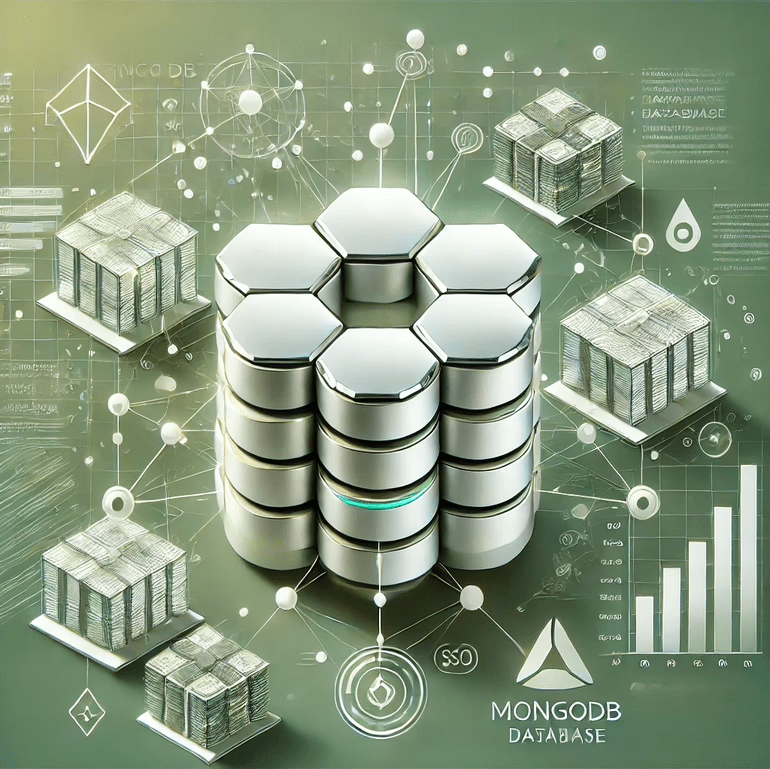In today’s dynamic digital landscape, traditional relational databases, while foundational, often struggle to keep pace with the massive volumes, diverse formats, and rapid evolution of data generated by modern applications. The need for agility, extreme scalability, and flexible data models has given rise to NoSQL databases, and among them, MongoDB stands out as a leading solution.
MongoDB is a document-oriented NoSQL database that stores data in flexible, JSON-like documents. This schema-less approach makes it incredibly adaptable to changing data structures and rapid application development. Its distributed architecture ensures high performance and horizontal scalability, handling vast amounts of data and high user concurrency with ease.
Whether you’re a business leader looking to build agile applications, manage big data, and innovate faster, or a tech professional eager to master a critical, in-demand database technology, understanding the power of MongoDB is essential. Let’s delve into how MongoDB unlocks immense potential for both organizations and individual careers.
For Enterprise Leaders: How Does MongoDB Drive Business ROI and Agility?
For senior managers, directors, VPs, and C-suite executives, building resilient, scalable, and adaptable applications directly impacts market responsiveness, operational efficiency, and customer satisfaction.
- Direct Answer: MongoDB drives significant ROI by enabling rapid application development, handling diverse data types with flexibility, ensuring horizontal scalability, and delivering high performance for demanding workloads. This leads to faster time-to-market, reduced development costs, improved application responsiveness, and the agility to adapt quickly to evolving business needs.
- Detailed Explanation and Supporting Evidence:
- Schema Flexibility (Agile Development): MongoDB’s document model allows developers to evolve data structures easily and quickly, without rigid schema changes required by relational databases. This dramatically speeds up application development cycles and makes it easier to iterate on features or pivot business strategies.
- Example: An e-commerce platform can quickly add new product attributes or customer segments without disrupting existing operations, allowing for faster product innovation and personalized offerings.
- Massive Scalability (Horizontal Scaling): MongoDB achieves high availability and horizontal scalability through sharding (distributing data across multiple servers) and replication. This allows it to handle enormous amounts of data and millions of concurrent users effortlessly, ensuring consistent performance even during peak loads.
- High Performance: Optimized for fast read and write operations, MongoDB is ideal for applications requiring low-latency data access, such as real-time analytics, content management systems, and gaming. Its in-memory computing capabilities further boost performance.
- Cost Efficiency: Running on commodity hardware and offering flexible deployment options (on-premises, cloud, hybrid), MongoDB can be a cost-effective alternative to scaling traditional relational databases, particularly for large, dynamic datasets.
- Rich Ecosystem & Analytics: MongoDB supports complex queries, aggregations, and powerful analytics capabilities, enabling businesses to extract valuable insights directly from their operational data, fostering data-driven decision-making.
- Schema Flexibility (Agile Development): MongoDB’s document model allows developers to evolve data structures easily and quickly, without rigid schema changes required by relational databases. This dramatically speeds up application development cycles and makes it easier to iterate on features or pivot business strategies.
Curate Partners’ Consulting Lens: We observe that organizations leveraging MongoDB effectively achieve remarkable agility and scalability in their application development. Our consulting services help businesses design, migrate to, and optimize MongoDB solutions to maximize their innovation and operational efficiency.
For Tech Professionals (Data Engineers, Data Scientists): How Can Mastering MongoDB Advance Your Career?
For data engineers, data scientists, and developers working with modern applications and big data, proficiency in MongoDB is a highly valued and continuously evolving skill set.
- Direct Answer: Mastering MongoDB equips you with essential skills in NoSQL database management, flexible data modeling, distributed systems concepts, and high-performance data handling. This makes you a critical asset for roles such as Data Engineer, Database Administrator (NoSQL), Backend Developer, and Data Scientist working with modern, scalable applications and diverse datasets.
- Detailed Explanation and Supporting Evidence:
- NoSQL Database Expertise: You’ll gain practical experience with a leading NoSQL database, understanding its strengths, weaknesses, and optimal use cases compared to relational databases.
- Flexible Data Modeling: You’ll learn to design flexible, document-based schemas that adapt to changing data requirements, a crucial skill in agile development environments.
- Distributed Systems Knowledge: Working with MongoDB’s sharding and replication features deepens your understanding of distributed systems concepts, including data consistency, fault tolerance, and horizontal scalability.
- Big Data & Real-Time Analytics: For data engineers, MongoDB is often used for real-time operational data stores that feed into analytical pipelines. For data scientists, it provides direct access to high-volume, dynamic data for model training and serving.
- Full-Stack & Cloud-Native Development: MongoDB is a popular choice for modern application stacks (like MERN/MEAN stack) and cloud-native deployments, enhancing your versatility across different development layers.
- Performance Optimization: You’ll learn techniques for optimizing MongoDB performance, such as effective indexing, query optimization, and replica set/sharding configurations, ensuring fast application response times.
Curate Partners’ Talent Focus: We connect skilled MongoDB professionals with leading companies building and maintaining cutting-edge, data-intensive applications, providing opportunities to work on transformative projects.
For Enterprise Leaders: Is MongoDB Secure, Scalable, and Maintainable for Enterprise Use?
Adopting any new database technology for critical applications requires strong assurances regarding data security, the ability to scale reliably, and long-term maintainability within an enterprise IT landscape.
- Direct Answer: MongoDB is designed with enterprise-grade security features, offers massive horizontal scalability, and provides a robust, maintainable framework for managing diverse and dynamic datasets, making it a reliable choice for even the most demanding enterprise requirements.
- Detailed Explanation and Supporting Evidence:
- Robust Security: MongoDB offers comprehensive security features including authentication (SCRAM-SHA-1/256, Kerberos, LDAP, x.509 certificates), authorization (role-based access control), encryption (at rest with native encryption or cloud KMS, and in transit with TLS/SSL), and auditing.
- Massive Scalability: Its native sharding feature allows data to be distributed across many servers, enabling linear scalability to handle petabytes of data and millions of operations per second. Replica sets ensure high availability and fault tolerance.
- High Availability and Disaster Recovery: Replica sets automatically provide data redundancy and failover capabilities, ensuring continuous application uptime even during node failures.
- Manageability and Ecosystem: MongoDB provides robust tools for monitoring, backup, and management. Its cloud offerings (MongoDB Atlas) further simplify operations by offering a fully managed Database-as-a-Service (DBaaS).
- Flexibility with Governance: While schema-less, MongoDB allows for schema validation rules, enabling developers to enforce data governance and consistency while maintaining flexibility.
Curate Partners’ Consulting Lens: We guide enterprises through complex MongoDB implementations, ensuring secure, scalable, and maintainable deployments that seamlessly integrate into existing systems, maximizing the value of their flexible data strategies.
Conclusion: MongoDB – The Agile Powerhouse for Modern Data
MongoDB is more than just a database; it’s an agile powerhouse that empowers businesses to innovate faster, scale effortlessly, and manage diverse data with unprecedented flexibility. For enterprises, it’s the key to building high-performance, responsive applications that drive customer engagement and competitive advantage. For tech professionals, mastering MongoDB offers a dynamic pathway to specialize in cutting-edge data management and application development.
By unlocking the power of MongoDB, organizations and individuals can confidently build and manage the flexible, scalable, and high-performance data solutions that define success in today’s digital economy.



